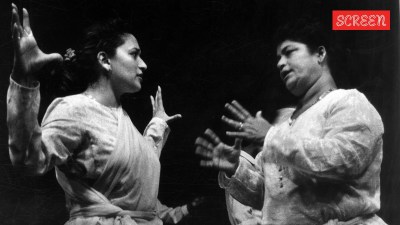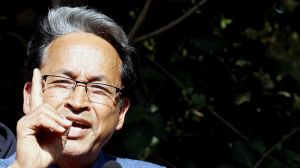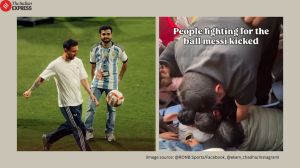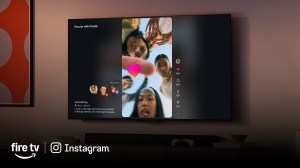
Due to my father’s job profile, we were constantly shifting from one city to another. We faced financial challenges too and therefore, I realised early in my life that to build a decent living, I need to have big ambitions, and I need to work hard to achieve those dreams.
Have I achieved it? I am on the right track for it. I recently finished my graduation from University College London (UCL) where I pursued MPA in Innovation, Public Policy and Public Value, and now I am starting a new job as an Operations Manager at Hounslow Wellbeing Network, London. Other than this, I hold a BA (Hons) English Literature degree from the University of Delhi.
Online courses led me to UCL
I was aware of foreign universities, especially Ivy League colleges because a few of my friends had got admission there. However, I thought that these institutes were ideal only for those who were rich or super bright students, and I may not be able to get a spot here. Therefore, I never even thought of applying to any of these top colleges.
During the Covid pandemic, I started pursuing online courses through the online learning platform Coursera which was provided by these universities. I realised that the kind of learning setup is different from what’s in India, and I was enjoying it. My family motivated me to at least apply and see where it goes and that’s how I started my research on these colleges.
I kept pursuing more certificate courses to find out where my interests lie. I wanted to study Development Studies. At that time, I was working with the United Nations Development Programme (UNDP). Due to Covid, we were working from home which gave me more time to dedicate to these courses, and this helped me realise that there is a lot that I want to and can learn.
After this, I started exploring courses that I wanted to study and ended up doing a crash course on sociology through YouTube. As this motivated me more, I started checking topuniversities.com to understand the rankings of these foreign universities.
Story continues below this ad
I knew that if I had to go abroad to study, I could not finance myself and would surely require an education loan. I told myself that if I do have to take an education loan then at least I should study from one of the top colleges.
After doing my research, I applied to nine foreign universities and got accepted by all of them. These universities were UCL, University of Sussex, University of Leeds, SOAS University of London, New York University (NYU), University of Southampton, University of Sheffield, University of East Anglia, and Erasmus University Rotterdam. I had also applied to the University of Manchester but didn’t get acceptance from there.
The first university I got selected for was the University of Sussex but that was the time when the pandemic was happening and the university said that I would have to pay the same amount for online classes and they didn’t even allow deferment of admissions. I didn’t see the point in paying the same amount, and so I decided to work for another year and apply again in the following year.
Researching for top colleges is time-consuming but important
My research mainly consisted of shortlisting the universities through topuniversities.com. I sorted out the top universities by subject, their overall ranking and some more criteria. Then, I visited the websites of all these universities to get more detailed information on the courses I want to pursue.
Story continues below this ad
I noted modules that I am interested in and how I can clip them together. It took a long time to do this research but it was worth it as that led to not just selecting the course I want to do, but also discovering where my interests lie. I was just interested in developmental studies, but through my research, I realised that this course at UCL does public administration through innovative ways.
 (Graphic by Abhishek Mitra)
(Graphic by Abhishek Mitra)
This was also the only programme for which I paid my application fee because, for the rest, I sought a fee waiver which the universities allowed. UCL denied an application fee waiver, but this was my dream course so I decided to pay the application fee.
Overall, the research for the perfect college took months, and the ideal time would be around three months to figure out where your interests lie, which course you want to do, and how you can get to that point.
Documents submitted for admission process at UCLA:
— Online application form
— Academic transcripts
— Letters of Recommendation (LoRs)
— Statement of Purpose (SoP)
— CV
— Duolingo English Test (DET)
— Application fee
— Identity documents
Story continues below this ad
Writing SoP = writing your story
Initially, I had around 10,000 words in my SoP. This was everything that I could think of about myself that I felt would be important. I put it all together in a document. After that, I started re-reading it and removing whatever I thought could be removed. The usual word limit for an SoP is 500-800 words, depending on the course and college.
One thing I have noticed in the past few years (since I have been helping other people with their SoPs) is that a lot of these statements look the same. I always emphasise that your SoP should reflect your identity. It should answer two basic questions: why do you want to be there and why should they take you?
Use your SoP as a complement to your CV, not a reflection of it.
SoP needs to have a structure in terms of sharing your life journey, not just your educational accomplishments, or your experiences because that’s easily visible on your CV. What they are looking for is what you can get beyond that. So your motivations, values, and alignment with the institution.
What I did was visit each institute’s (and department’s) website to check their values, faculty, specialities, etc, and then I used those keywords in my SoPs. I even added what modules I am interested in that specific programme being offered in that specific college/ university. I talked first about my journey, even before my education and about my family background. I had also started my organisation, so I talked about that too.
Story continues below this ad
It is essential to remember that a good story should always consist of a beginning, a middle, and a climax/ end.
When you introduce yourself, do talk about challenges. You are the main character, you are telling a story, and the idea at the end is to just tell them that I have done everything. It should communicate that the only logical thing for me to do next is to study this course at your university. As long as you can communicate that properly, you will get through.



 (Graphic by Abhishek Mitra)
(Graphic by Abhishek Mitra)





























